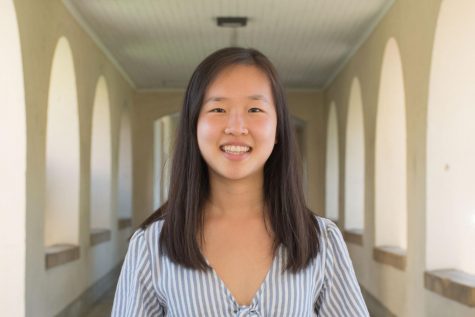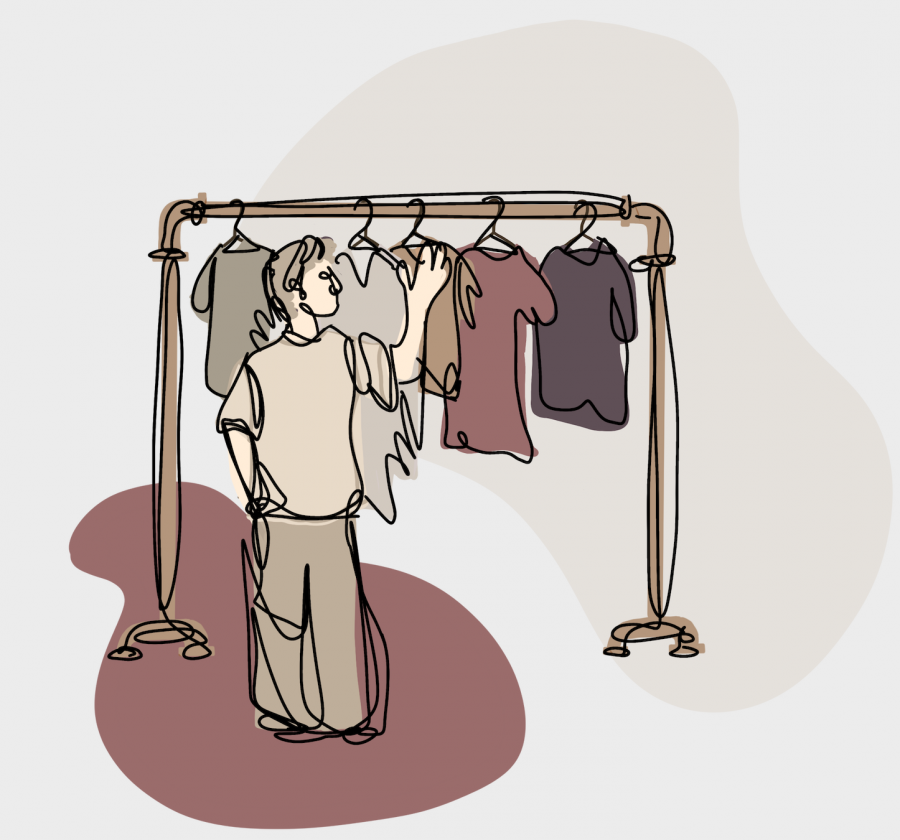Living Simply
The younger generation’s take on a minimalist lifestyle amidst an increasingly materialistic world.
Sophomore Bennett Hardy does not believe in following a set of rules about how to live, but rather tries to simplify life in order to live more intentionally. He believes that minimalism is about being able to focus on your life, not on material things.
“Our lives are just so short. Why do we always focus so much on the little things? Why don’t we just focus on our lives?” Hardy said.
Hardy, like all minimalists, has his own unique way of adopting the lifestyle, which fulfills his personal goals of living more intentionally. Everybody has different reasons for adopting the minimalist lifestyle and different ways of executing it, but Hardy feels that many people miscategorize minimalism as a suffocating, rigid lifestyle.
“[People] think you’re just getting rid of everything and that there’s nothing in your room or you can’t have certain things,” Hardy said. “That’s not what [minimalism] is about, it’s just simplifying your life.”
Diana Lim, a teen who actively shares her minimalist lifestyle on her blog (minimalistteen.com), defines the movement as a way to live “a happier, healthier and more deliberate life.”
Upon entering high school, Lim realized that she was caught up in an unhealthy cycle of shopping and comparing herself to other people. “I was not content with what I had, even after I would buy things,” Lim said. “I just always wanted more.”
After discovering minimalism, Lim started placing less value in keeping up with the trends and instead focused on herself. “I realized that the source of my joy was not in my things,” Lim said. “[With minimalism] I could focus on the things in my life that I care about more than just physical items.”
The first step Lim took after realizing the benefits of a minimalistic lifestyle was purging 90% of her possessions. She had a “packing party” where she put everything she owned into boxes and packed it up. Over the course of a week, she only unpacked the items she needed to use, and then donated the untouched items at the end of the week.
After taking the first step to get rid of unnecessary items, Lim felt more free from the negative consumerist culture many are influenced by. However, that is not to say she shies away from buying any products or clothes; instead she more seriously considers the long-term sustainability. “My principle is that I want clothing that is more timeless and will remain stylish after the trend passes,” Lim said.
Since making these lifestyle changes, Lim has found more time to do things she genuinely enjoys. “Before I was a minimalist, a lot of my time was devoted to thinking about stuff I wanted, or what I was going to do with my closet full of out-of-fashion clothing,” Lim said. “Now that I’ve become a minimalist, I don’t think about that anymore, so I can devote my time towards more deliberate activities, like using technology to make the world a better place, or meditation in the morning.”
Not only did Lim make changes regarding her current possessions, but she also changed her mindset when it comes to encountering material items. “For my birthday, I started gifting and asking for things that are not physical gifts and instead asked for experiences,” Lim said. “I would ask for concert tickets or go get brunch with a friend or something like that. That way, I wouldn’t be stuck with a bunch of physical gifts that I didn’t actually want.”
Lim’s happiness in her decision to cherish memories more than physical items shows how much of an impact minimalism has made on her life.
“The fact that I have no regrets is a testament to how changing my lifestyle so drastically opened my eyes to how I used to place a lot more importance on physical things,” Lim said.
While Lim took drastic steps in order to adopt a minimalist lifestyle, she recognizes that not everyone can do the same. “Everybody has their own interpretation of minimalism and there’s a huge spectrum of how it is expressed,” Lim said. “At the end of the day it’s really just about clearing up your life in order to be more focused on the things that make you happier, and make you live your life more deliberately,” Lim said.
There are many different ways to adopt a minimalist lifestyle, because there are countless interpretations of what is considered “minimal” or “sustainable.” Because some people choose to take drastic steps in order to become minimalists, the lifestyle is clouded by many stereotypes and an inaccurate perception of what sustainable living really is. To some, it may be wearing the same simple outfit to school every day, while to others, it means splurging on items that they really want while refraining from following all the trends.
There is no doubt that there are flaws in consumerist culture, and it is important to realize that there are many ways to reduce its negative impacts without having to be extreme and live with no material possessions. The three main factors of the minimalist lifestyle are consciously buying less, keeping things you love and focusing on yourself. Everything else is up to you and can be done in any way that suits you the best.
“In the [minimalist] journey, it’s less about depriving yourself and less about trying to own as few things as possible,” Lim said. “It’s more about making sure that everything you own adds value to your life.”
Art by Kellyn Scheel

2019-2020 - Staff Writer
2020-2021 - Social Media Manager
2021-2022 - Managing Editor
Hi! I am Eunice Cho, and I am a senior at Palo Alto High...

2020-2021 - Staff Writer
2021-2022 - Managing Editor
I joined C magazine because I love the creativity and culture, plus we get to write...







